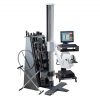
CMS Revokes CPT Ban of Same-day Evaluation and Therapeutic Procedure
Practice ManagementThe new mandate from CMS prohibited the use of CPT codes 97530 and 97150 on the same day as an initial evaluation. This came as a major surprise to allied health providers and clinic owners, as well as the APTA and AOTA.
News from Centers for Medicare and Medicaid Services (CMS) and National Council on Compensation Insurance (NCCI)
On January 2, 2020, CMS released a mandate which prohibited clinicians from billing for therapeutic activities on the same day as physical therapy and occupational therapy evaluations. Fortunately, and due to the extensive professional advocacy efforts from the American Physical Therapy Association (APTA), the American Occupational Therapy Association (AOTA), and others, CMS will now reverse the CPT coding methodology change. The reversal will be retroactive to January 1 of this year.1
This is an ongoing situation and CMS is set to provide further details. In the meantime, keep reading to learn the story behind this ill-fated coding update and its potential effect on your facility’s reimbursement and PT and OT workflow.
About the Short-lived Coding Mandate From CMS
The new mandate from CMS prohibited the use of CPT codes 97530 (therapeutic activities) and 97150 (therapeutic procedures, group, two or more individuals) on the same day as an initial PT or OT evaluation. This came as a major surprise to allied health providers and clinic owners, as well as their professional organizations including APTA and AOTA.
Under the coding change, use of modifier 59 would not have been sufficient to ensure reimbursement for services provided under these CPT codes. As a reminder, CMS itself deems modifier 59 necessary in certain situations in order to “indicate that a procedure or service was distinct or independent from other [non-evaluation and management] services performed on the same day.” This includes procedures and services not normally reported together but “are appropriate under the circumstances.”2
However, the new CMS coding mandate stated that modifier 59 must be used whenever the CPT code for manual therapy (CPT 97140) is billed with a PT or OT evaluation.
These billing changes, which CMS accepted from the latest NCCI procedure to procedure (PTP) edits, applied specifically to outpatient therapy providers operating in private and facility-based settings.3 NCCI PTP edits intend to prevent reimbursement of overlapping services—but outspoken critics fear that these changes would in no way achieve that, and if anything, would act as a direct impediment to patient care and best practice for physical and occupational therapy.
Criticisms of the New CPT Code Regulations
To say that these sudden and unexpected changes sparked an outrage among the PT and OT community would not be an overstatement. Both AOTA and APTA expressed frustration and formal complaints with the new CPT mandate, which APTA says is “a decision that flies in the face of standard PT practice and effective patient care.”3
The following were some major concerns about the latest NCCI PTP coding edits that CMS approved and accepted:
- Advanced notice was extremely short, or effectively nil. Capitol Bridge, Inc., the company that oversees NCCI edits, failed to give appropriate advanced notice to both APTA and AOTA.3,4
- These changes ignore and complicate best practice expectations of the PT and OT professions, which is to provide high quality care for patients even on the day of evaluation, as well as to provide quality continuation of care even on the same day as re-evaluations. 3 Critics argue that these CPT changes would have posed a major barrier to effective, efficient, and appropriate care and thereby hinder the patient experience.
- APTA member feedback also noted that these CPT edits applied across disciplines, further complicating multidisciplinary care and rehab
For example, under these new coding mandates, an OT or COTA would not have been allowed to charge for code 97530 or code 97150 on the same day that a PT charges for a PT evaluation, and vice versa. Not only would this delay care, but it would have likely impaired provider productivity and potentially opened the door to unethical reimbursement practices.
APTA and AOTA Share Their Views
The resounding sentiment from APTA, AOTA, and individual clinicians is that these coding changes were completely tone-deaf and inappropriate. At best, the edits were short-sighted. At worst, they were in direct opposition to the best interest of providers and patients.
Not allowing therapists to bill for therapeutic activities on the same day of evaluation unnecessarily complicates clinician workflow—especially given the lack of appropriate notice clinicians were given to prepare for such changes.
This major CPT coding change also threatened to impede clinicians’ ability to provide a high-quality patient experience and could have forced an interruption or delay of patient care.
Changes to NCCI edits are effective on a quarterly basis. But both APTA and AOTA have successfully called for an earlier correction to and ultimate reversal of these edits—although the logistics are still being worked on. In a January 29 release from the APTA website, we now know that “the reversal will be extended to claims made from January 1, 2020” and on.
Meanwhile, clinicians have a few options for managing daily workflow and billing practices. APTA recommends to “delay submitting claims until after CMS gives the green light; resubmit claims denied because of the coding edits once the change is official; or appeal any claims denied due to the edits to the [Medicare administrative contractors], supplying supporting documentation.”1
It’s evident from the strong response of APTA and AOTA—as well as the fast reversal from CMS—that the sudden change of CPT coding edits was not a well-thought-out decision and one that threatened to impede both the practical and ethical practice of the PT and OT professions. The story is still actively developing, so stay tuned for future developments as they arise.
References
- American Physical Therapy Association. News Now Staff. (January 29 2020). CMS coding reversal will apply to claims made beginning January 1, 2020. Retrieved from http://www.apta.org/PTinMotion/News/2020/01/24/NCCIDecision/.
- American Medical Association. (2017). Modifier 59 article. Retrieved from https://www.cms.gov/Medicare/Coding/NationalCorrectCodInitEd/downloads/modifier59.pdf.
- American Physical Therapy Association. News Now Staff. (January 2 2020). Time to act: surprise coding complication ignores realities of PT practice and must be changed. Retrieved from https://www.apta.org/PTinMotion/News/2020/01/02/NCCIEdit/.
- American Occupational Therapy Association. (January 3 2020). AOTA opposing changes to NCCI edits effective January 1, 2020. Retrieved from https://www.aota.org/Advocacy-Policy/Federal-Reg-Affairs/News/2020/Opposing-NCCI-Edits-2020.aspx.





